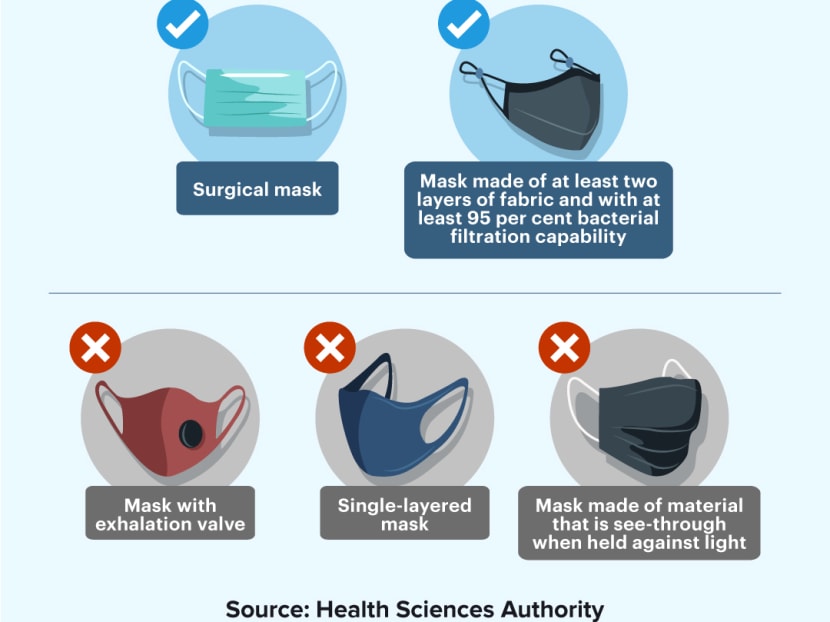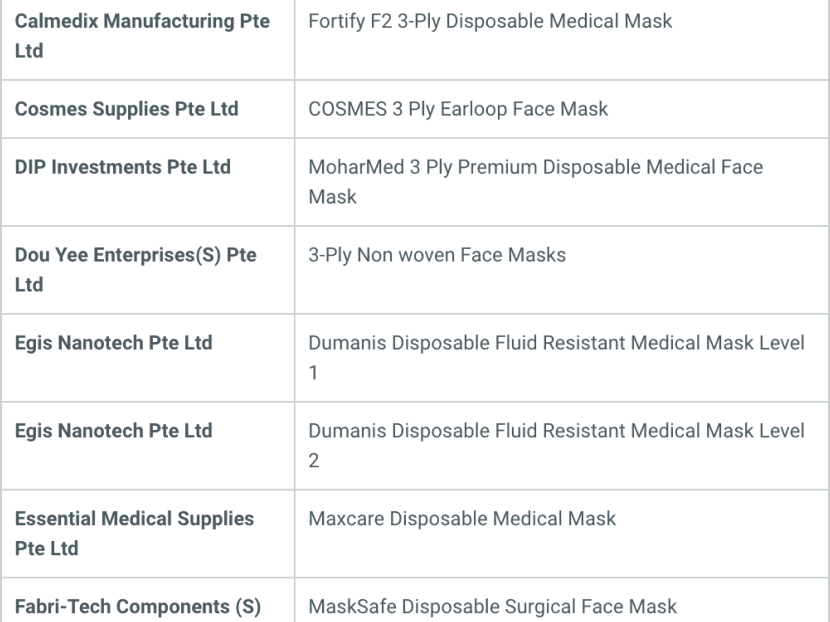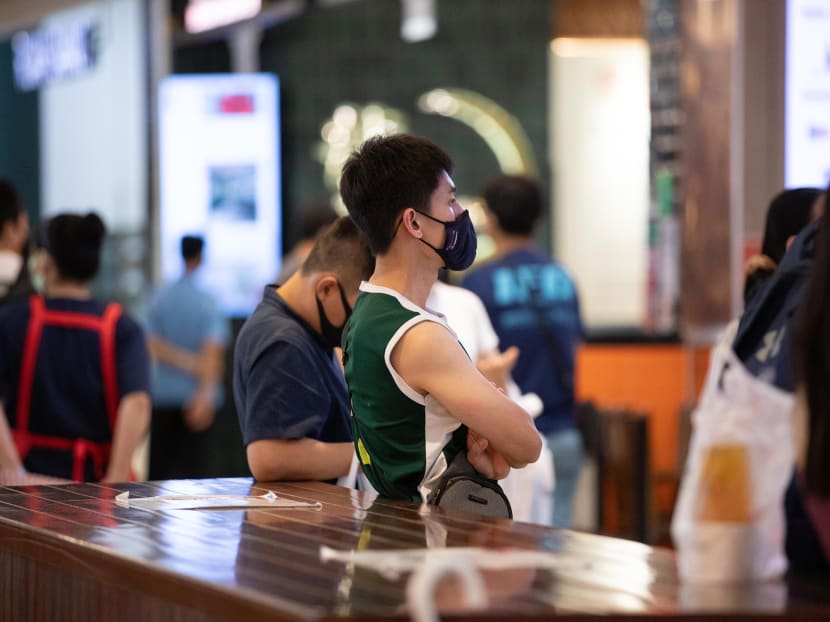Covid-19: HSA issues updated guidelines for masks
SINGAPORE — The Health Sciences Authority (HSA) on Wednesday (May 19) issued updated guidelines on cloth or fabric face masks and surgical masks.
- HSA issued guidelines on both face masks and surgical masks
- They come after the Government recommended that the public use masks with good filtration capability
- Face masks should have at least two or three layers made of different fabrics
- Masks issued by the People’s Association and Temasek Foundation are acceptable
SINGAPORE — The Health Sciences Authority (HSA) on Wednesday (May 19) issued updated guidelines on cloth or fabric face masks and surgical masks.
They come a day after the Government advised the public to use masks with "good filtration capability", such as single-use surgical masks or reusable ones made of at least two layers of fabric and with at least 95 per cent bacterial filtration capability.
The face masks issued by the People's Association and Temasek Foundation meet the recommended levels of protection, the HSA said.
In its advisory, the HSA highlighted the distinction between cloth or fabric face masks, and surgical masks, also known as medical masks.
The authority said that face masks should have at least two to three layers of fabric and as a general guide, the material should not be see-through when held against the light.
It also advised people to reduce their talking when wearing a mask as this will lower the amount of condensation produced within the mask and extend its effective life.
Individuals should also avoid choosing masks with exhalation valves, as these allow the escape of exhaled droplets from the wearer, exposing others to the risk of infection, the HSA said.
HOW TO CHOOSE A FACE MASK?
The recommended minimum two or three layers of a face mask should preferably be made of different fabrics.
This should include a water-repellent outer layer, a middle filter layer to remove particulates, which can be in the form of disposable filter inserts, and lastly, an absorbent inner layer to absorb droplets from the wearer's mouth.
The fabrics used should also have “better filtering efficiency” and enough permeability to allow breathing, the HSA said.
The face mask should also have an appropriate fit around the face and chin, with complete coverage of the nose and mouth, which will help to prevent leakage of exhaled droplets.
WHEN TO USE A SURGICAL MASK
The HSA said that surgical masks are recommended in situations where an individual is in contact with an infected or a potentially infected individual.
Surgical masks offer high filtration efficiency, adequate breathability and reasonable fluid penetration resistance, it added.
The performance characteristics of surgical masks are tested according to a set of standardised test methods based on international standards such as ASTM F2100, EN 14683, or equivalent.
These standards are used to verify that the surgical masks meet prescribed requirements for bacterial filtration efficiency of at least 95 per cent, breathability and splash resistance, among other factors, the HSA said.
Surgical masks, which are used during medical and surgical procedures in healthcare settings, are regulated as medical devices under the HSA.

HOW SAFE ARE LOCALLY MANUFACTURED SURGICAL MASKS?
Local surgical mask manufacturing facilities are required to be licensed by the HSA.
Prior to licensing, these facilities have been subject to virtual inspections and desktop audit by the HSA to ensure that they meet reasonable standards of manufacturing quality.
To date, the HSA has licensed 26 mask manufacturing facilities to meet local demand for surgical masks. These include:

HOW ARE MASKS FROM OVERSEAS MANUFACTURERS REGULATED?
The HSA said that importers are required to notify the agency of details of the masks they intend to import, as well as the quantity, before they do so.
The authority added that it monitors global safety reports on masks and where there are any safety concerns, will take the necessary action such as to alert the importer and recall the affected masks from the market.
SOME DOS AND DON'TS
The HSA advises against reusing masks as they are contaminated once used.
People should practise the proper removal of used and contaminated masks.
Touch only the straps and not the surface of the mask when removing it. Hands should be washed after doing so.
To ensure effectiveness, change masks if soiled or wet.
For reusable masks, individuals are advised to follow the manufacturer’s instructions on washing, and replace once it is used beyond the recommended number of uses.
HSA has also added a list of 32 surgical mask brands, made by HSA-licensed local manufacturers, that meet 95 per cent bacterial filtration efficiency on its website.












